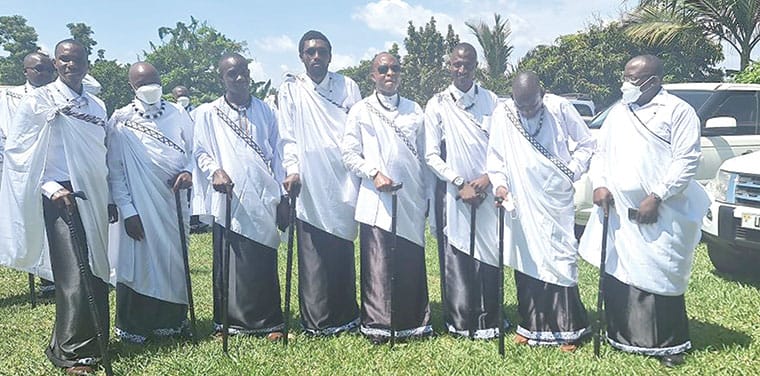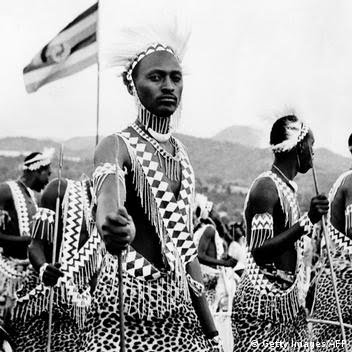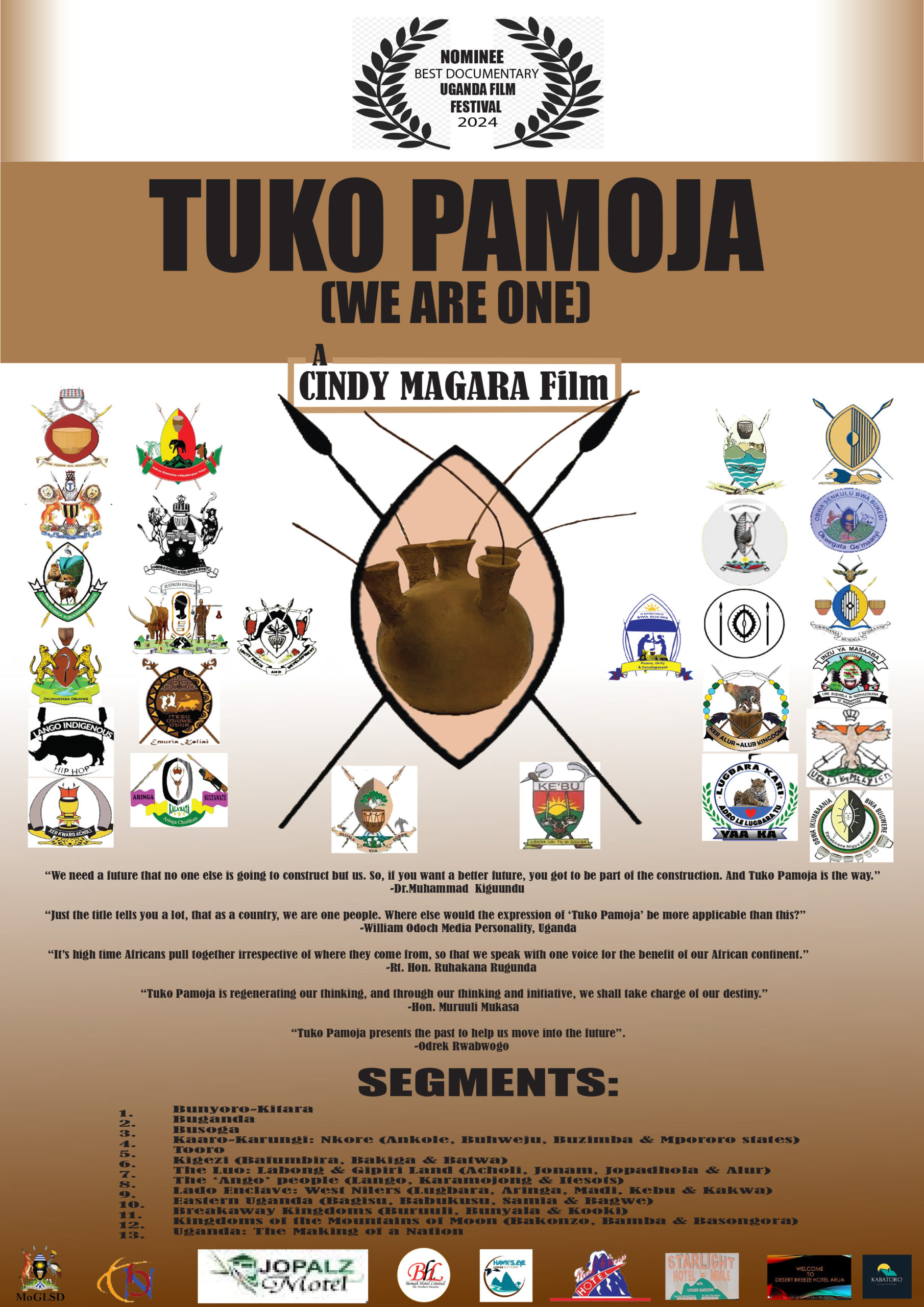By CHANGE OF GUARDS
Tuko Pamoja is a documentary series about Uganda’s 19th-century history. It explores Uganda’s sense of identity, togetherness, and belonging as a post-colonial nation.
Written by Rodgers Atukunda and directed by Cindy Magara, the documentary examines the unifying political, economic, and cultural heritage of the peoples of the Great Lakes region, tracing its roots to the great Bunyoro Kitara Empire.
Dubbed “Uganda: The Making of a Nation,” the series delves into how various communities were brought together to form the country of Uganda.
The filmmakers engage with different communities to gain a deeper understanding of the construction of cultural identity and ethnicity and how they relate to the larger Ugandan identity.

The initiators aimed to help communities appreciate their heritage and identity.
The 13-part series covers the origins of the people of Uganda and the kingdoms they belonged to, which later evolved into Uganda.
These segments include the Bunyoro Kitara Kingdom, Buganda, Tooro, Karagwe, Ankole, Mpororo states, Buhweju, Kigezi (Bafumbira, Bakiga, and Batwa), Acholi, Lango, Japadhola, Alur, Karamoja, Teso, Bukedi, Busoga, Bugisu, Babukusu, Samia, Bugwe, the Rwenzori (Bamba and Bakonzo), Lado, Aringa, Lugbara, Bunyala, Buruli, and Kooki.

The initiative has been well-received by communities across the country. However, it is noteworthy that the influential Banyarwanda community has not been covered.
The 1995 Constitution granted Ugandan citizenship to all Banyarwanda, leading them to play a significant role in the country’s social, political, and economic spheres. Currently, there are attempts to shift from the Banyarwanda identity to the name Abavandimwe.
Consequently, the creators may have avoided covering the Banyarwanda community to prevent uncovering sensitive issues that could lead to accusations of promoting sectarianism.
INFORMATION IS POWER, AND THE PROBLEM OF UGANDA IS MUSEVENISM







Discussion about this post